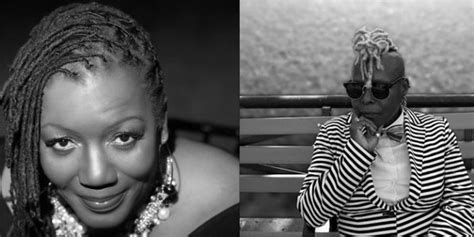A Quote by Manu Joseph
The unfortunate are not as miserable as the world imagines. That urchins, the handicapped, orphans, prisoners and others are much happier than people think. And that language is a trap, that a dark evolutionary force has created languages to limit human thought. That writers are overrated fools. That all religions come from ancient comic writers. And the ultimate goal of comics is same as the purpose of humanity – to break free from language.
Quote Topics
All Religions
Ancient
Break
Come
Comic
Comics
Created
Dark
Evolutionary
Fools
Force
Free
Goal
Handicapped
Happier
Human
Human Thought
Humanity
Language
Languages
Limit
Miserable
Much
Orphans
Others
Overrated
People
Prisoners
Purpose
Religions
Same
Than
Think
Thought
Trap
Ultimate
Ultimate Goal
Unfortunate
World
Writers
Related Quotes
We live in a world filled with language. Language imparts identity, meaning, and perspective to our human community. Writers are either polluters or part of the clean-up team. Just as the language of power and greed has the potential to destroy us, the language of reason and empathy has the power to save us. Writers can inspire a kinder, fairer, more beautiful world, or invite selfishness, stereotyping, and violence. Writers can unite people or divide them.
It is a mass language only in the same sense that its baseball slang is born of baseball players. That is, it is a language which is being molded by writers to do delicate things and yet be within the grasp of superficially educated people. It is not a natural growth, much as its proletarian writers would like to think so. But compared with it at its best, English has reached the Alexandrian stage of formalism and decay.
At that moment, it seemed to him that time stood still, and the Soul of the World surged within him. When he looked into her dark eyes, and saw that her lips were poised between a laugh and silence, he learned the most important part of the language that all the world spoke — the language that everyone on earth was capable of understanding in their heart. It was love. Something older than humanity, more ancient than the desert. Something that exerted the same force whenever two pairs of eyes met, as had theirs here at the well.
The force and the strength for peace will come from people. And that will happen when people start to realize that all the diversity and differences we see of nationalities, of religions, of cultures, of languages, are all beautiful diversities, for they are only on the surface. And deep down we share the same humanity, the global humanity.
I try to write each piece in the language of the piece, so that I'm not using the same language from piece to piece. I may be using ten or twenty languages. That multiplicity of language and the use of words is African in tradition. And black writers have definitely taken that up and taken it in. It's like speaking in tongues. It may sound like gibberish to somebody, but you know it's a tongue of some kind. Black people have this. We have the ability as a race to speak in tongues, to dream in tongues, to love in tongues.
I work in Hebrew. Hebrew is deeply inspired by other languages. Not now, for the last three thousand years, Hebrew has been penetrated and fertilized by ancient Semitic languages - by Aramaic, by Greek, by Latin, by Arabic, by Yiddish, by Latino, by German, by Russian, by English, I could go on and on. It's very much like English. The English language took in many many fertilizations, many many genes, from other languages, from foreign languages - Latin, French, Nordic languages, German, Scandinavian languages. Every language has influences and is an influence.
We think only through the medium of words. Languages are true analytical methods. Algebra, which is adapted to its purpose in every species of expression, in the most simple, most exact, and best manner possible, is at the same time a language and an analytical method. The art of reasoning is nothing more than a language well arranged.
Considering that we live in an era of evolutionary everything---evolutionary biology, evolutionary medicine, evolutionary ecology, evolutionary psychology, evolutionary economics, evolutionary computing---it was surprising how rarely people thought in evolutionary terms. It was a human blind spot. We look at the world around us as a snapshot when it was really a movie, constantly changing.

































